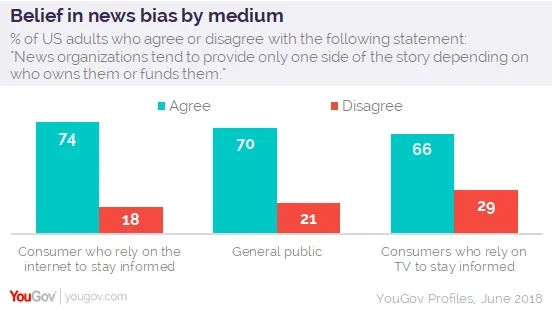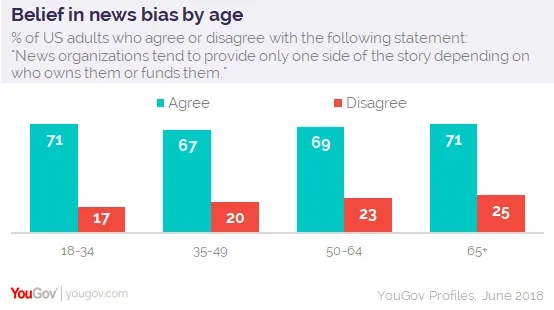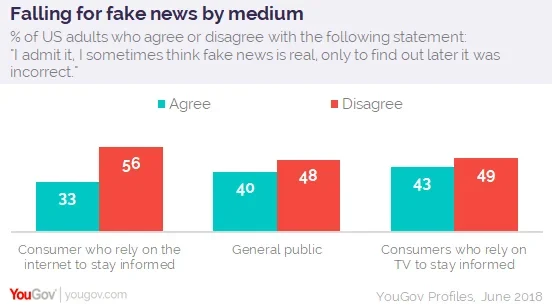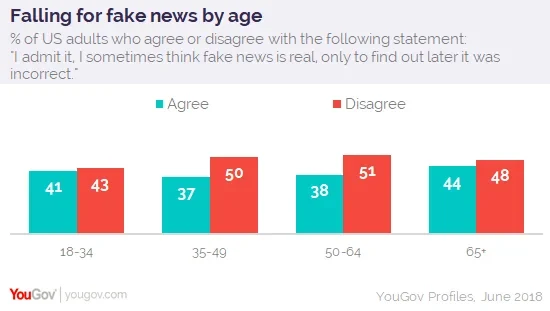41% of consumers aged 18-34 and 44% aged 65+ admit to falling for fake news
Americans distinguish themselves from each other in several ways. There’s women versus men, for example, or Republicans versus Democrats. And then there’s the divide between people who prefer the television to keep up to date with the news and people who rely on the internet.
Data from YouGov Profiles is able to neatly put these consumers into two distinct groups: US adults who agree with the statement "The internet is my primary source of information” and disagree with the statement "I rely on TV to keep me informed," and the opposite ("I rely on TV to keep me informed," but not "The internet is my primary source of information").
When asked if news organizations tend to provide only one side of the story depending on who owns them or funds them, additional data reveals that 74% of US adults who rely on the internet to stay informed agree. Meanwhile, 66% of consumers who rely on the TV to stay informed say the same. Overall, 70% of the general public agrees with this assessment.

Unsurprisingly, perhaps, consumers who tend to rely on the internet to stay informed skew younger (18-34), while those who turn to the TV for news are most likely older (65+).
At the same time, however, consumers aged 18-34 and those aged 65+ are the most likely age groups of American adults to agree that news organizations usually provide just one side of the story. In total, 71% of these younger and older consumers agree with the statement, compared to 67% of people aged 35-49 and 69% of those aged 50-64.

When asked about the likelihood of falling for fake news, consumers who rely on TV to stay informed are the most likely group to admit they sometimes do (43%). Consumers who rely on the internet were less likely to agree (33%) that they sometimes think fake news is real, only to find out later it was incorrect.

Yet again, however, both the youngest and oldest American adults are most likely to admit falling for fake news — 41% of those aged 18-34, and 44% of consumers aged 65+. By comparison, 37% of US adults aged 35-49 say they sometimes fall for fake news, while 38% of those aged 50-64 say the same.

Photo: Getty














